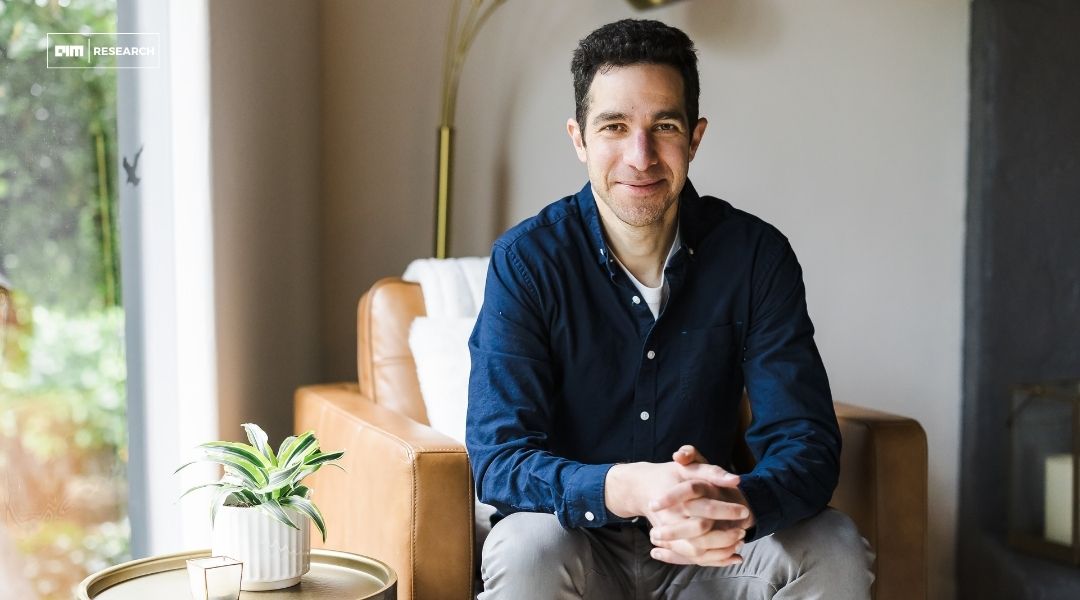

Dr. Gabi Meckler never planned to start a company. As a family physician in Northern California, she was too busy juggling patient care and an overwhelming documentation workload. Like most doctors, she found herself spending late nights and weekends finishing notes, charting, and paperwork time she wished she could spend with her family. Her husband, Erez Druk, a former Facebook engineer and serial entrepreneur, watched her struggle and wanted to help.
“One day, I asked Gabi, ‘What should we build for you?’ And she said, ‘Do my notes for me.’”
That simple request led to Freed AI, an AI-powered clinical scribe designed to eliminate the burden of medical documentation. What started as a personal project quickly grew into one of the fastest-growing health-tech startups. Today, Freed is used by over 17,000 clinicians across 2 million patient visits each month—and the company just secured $30 million in funding led by Sequoia Capital, a rare achievement for an early-stage startup in the AI medical scribing space.
Clinician burnout has reached crisis levels, with 50% of doctors experiencing symptoms of exhaustion, and studies showing that clinicians spend up to 19 hours a week on administrative tasks time that takes away from patient care and personal well-being. Freed is designed to give that time back. Unlike other AI scribes that focus on hospital systems, Freed has gained traction among small and independent practices, where doctors often lack access to enterprise AI solutions.
The company’s AI scribe listens to doctor-patient conversations, understands context, and automatically generates medical notes that are tailored to each clinician’s style. The system is designed to be highly customizable, allowing doctors to tweak notes to match their preferences while seamlessly integrating with their existing workflows. The results have been game-changing. On average, Freed saves clinicians two hours per day, reducing after-hours documentation and helping them focus on patients instead of paperwork.
Freed’s approach is built on a deep understanding of the clinician experience. Meckler served as the company’s first user, and her feedback directly influenced the product’s development. That hands-on, physician-led design process has made Freed particularly appealing to doctors frustrated by generic AI solutions that don’t fit the nuances of different medical specialties.
With fresh capital in hand, Freed is expanding its AI capabilities and entering new markets. The company is rolling out advanced pre-charting tools, specialty-specific documentation enhancements, and deeper EHR integrations to further streamline the physician workflow.
Additionally, the funding will help Freed scale its reach beyond primary care. The company is launching new AI models optimized for specialties like behavioral health, cardiology, and orthopedics, ensuring that even more clinicians can benefit from AI-powered documentation.
Freed is also exploring enterprise partnerships, with growing interest from hospital groups and large healthcare organizations that see the potential for AI scribes to improve efficiency and reduce clinician burnout at scale.
Despite competing in a space filled with well-funded startups, Freed has stood out for its rapid adoption and strong physician loyalty. Its success mirrors that of consumer SaaS giants like Slack and Zoom, which disrupted their industries by creating intuitive, high-impact products. Freed’s 4x year-over-year revenue growth is a testament to its traction, and as larger enterprises and group practices show interest, the company is well-positioned for its next phase of expansion.
For Druk, it’s personal. “Freed was built as a love letter to clinicians starting with my wife,” he said. “Doctors dedicate their lives to caring for others. They deserve a company that cares for them.” Now clinicians don’t have to choose between great patient care and work-life balance. They can have both.
📣 Want to advertise in AIM Research? Book here >
Cypher 2024
21-22 Nov 2024, Santa Clara Convention Center, CA
A Vendor Briefing is a research tool for our industry analysts, and an opportunity for a vendor to present its products, services and business strategies to analysts who cover the vendor specifically or a related technology or market.
AIM Research encourages technology vendors and agencies to brief our team for PeMa Quadrants, when introducing a new product, changing a business model, or forming a partnership, merger, or acquisition.


